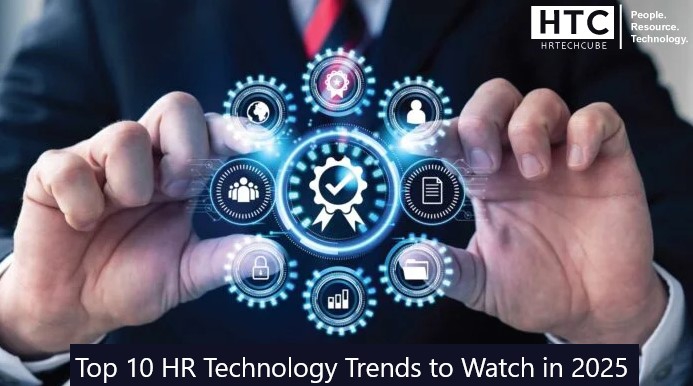As we navigate through 2025, the landscape of Human Resources (HR) is experiencing a profound transformation driven by technological advancements. Staying abreast of these HR technology trends is crucial for organizations aiming to enhance efficiency, improve employee experience, and maintain a competitive edge.
Table of Contents
-
Artificial Intelligence in Recruitment
-
Personalized Learning and Development
-
Advanced People Analytics
-
AI-Powered HR Chatbots
-
Comprehensive Employee Well-being Platforms
-
Diversity and Inclusion Technologies
-
On-Demand HR Services
-
Integrated HR Software Ecosystems
1. Artificial Intelligence in Recruitment
Artificial Intelligence (AI) is revolutionizing recruitment by automating tasks such as resume screening and interview scheduling. By 2025, AI tools have become more sophisticated, providing predictive insights into candidate quality and cultural fit. Advanced AI chatbots assist in creating job descriptions, sourcing candidates, and scheduling interviews, enhancing the efficiency of the recruitment process.
2. Personalized Learning and Development
The era of one-size-fits-all corporate training is fading. AI-driven learning platforms now offer personalized development opportunities tailored to individual strengths, weaknesses, and career aspirations. From coaching chatbots to virtual reality simulations, these platforms create customized learning pathways, keeping employees engaged and aligned with organizational goals.
3. Advanced People Analytics
HR departments are leveraging analytics to gain strategic insights across the talent lifecycle. Predictive analytics enable organizations to foresee turnover risks among high performers and identify emerging skill gaps, facilitating proactive talent management and strategic workforce planning.
4. AI-Powered HR Chatbots
Intelligent HR chatbots provide 24/7 support for tasks like answering policy questions, resolving IT issues, and assisting employees across various functions. Integrated into platforms like Slack and Microsoft Teams, these chatbots offer swift self-service solutions, allowing HR professionals to focus on more complex responsibilities.
5. Comprehensive Employee Well-being Platforms
Organizations are prioritizing holistic wellness platforms that offer personalized recommendations based on data from wearables and self-reported health metrics. These platforms provide resources such as guided meditations and resilience training, fostering a culture of care while respecting employee privacy.
6. Diversity and Inclusion Technologies
To promote inclusivity, HR technology is addressing biases in existing processes. Tools like anonymous recruitment platforms eliminate demographic indicators during initial screening, while talent analytics identify barriers faced by underrepresented groups, enabling targeted interventions to foster a more inclusive workplace.
7. On-Demand HR Services
Delivering consumer-grade employee experiences is a key focus for HR organizations. On-demand access to HR services through user-friendly mobile platforms allows employees to book virtual appointments with HR partners, request internal transfers, and receive instant assistance from AI assistants, streamlining operations and enhancing satisfaction.
8. Integrated HR Software Ecosystems
The fragmented landscape of multiple HR solutions is evolving into interconnected ecosystems united by common data models. Platforms like Workday and SAP SuccessFactors enable integrated planning across the employee lifecycle, providing a holistic view of talent management and aligning individual efforts with business objectives.
For More Info: https://hrtechcube.com/10-hr-technology-trends/
Conclusion
Embracing these HR technology trends is essential for organizations aiming to stay competitive in 2025 and beyond. By integrating advanced technologies into HR processes, companies can enhance efficiency, foster employee engagement, and build a more inclusive and agile workforce.




